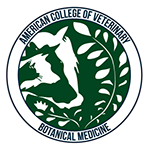Veterinary Botanical Medicine and Aquaculture
Journals publishing peer-reviewed articles on botanical medicine for fish disease:
• Aquaculture
• Journal of Applied Ichthyology
• Veterinary Parasitology
• Fish and Shellfish Immunology
• Fish Physiology and Biochemistry
• Journal of Fish Diseases
• Veterinary Pharmacology and Therapeutics
• North American Journal of Aquaculture
• Aquaculture
• Journal of Applied Ichthyology
• Veterinary Parasitology
• Fish and Shellfish Immunology
• Fish Physiology and Biochemistry
• Journal of Fish Diseases
• Veterinary Pharmacology and Therapeutics
• North American Journal of Aquaculture
A recent (2015) review in Veterinary Pharmacology and Therapeutics reports promising effects of many herbal medicines for treating parasitic diseases caused by protozoa and metazoan, and broad activity against bacteria and fungi. The review lists the main findings and methodologies of the latest research on herbal medicines to stimulate and accelerate research recognizing the current issues regarding indiscriminate use of chemicals and antibiotics in aquaculture (1).
For example Valladao et al. (2015) were successful in treating severe cases of ichthyophthiriasis in Piaractus mesopotamicus fish using two-hour daily baths of the essential oil of M. alternifolia for five days, which shows that this has great potential for use in aquaculture (2). Likewise a review of the use of immunostimulant herbs in aquaculture as an alternative to drugs, chemicals, growth promoters and antibiotics concludes they can be used as alternatives to these agents primarily because they are easily obtained, inexpensive, act against a broad range of pathogens and are biodegradable (3).
Petition Appendix IX-A outlines the abstracts of 14 recent journal articles demonstrating the importance of botanical medicines in aquaculture and supported by a further 35 journal titles published since 2010 from a possible 350 articles published in the last 5 years on plant extracts and fish.
For example Valladao et al. (2015) were successful in treating severe cases of ichthyophthiriasis in Piaractus mesopotamicus fish using two-hour daily baths of the essential oil of M. alternifolia for five days, which shows that this has great potential for use in aquaculture (2). Likewise a review of the use of immunostimulant herbs in aquaculture as an alternative to drugs, chemicals, growth promoters and antibiotics concludes they can be used as alternatives to these agents primarily because they are easily obtained, inexpensive, act against a broad range of pathogens and are biodegradable (3).
Petition Appendix IX-A outlines the abstracts of 14 recent journal articles demonstrating the importance of botanical medicines in aquaculture and supported by a further 35 journal titles published since 2010 from a possible 350 articles published in the last 5 years on plant extracts and fish.
REFERENCES:
1 Valladao G, Gallani S, Pilarski F Phytotherapy as an alternative for treating fish disease J Vet Pharmacol Therap 38 417-428 2015.
2 Valladão GM, Gallani SU, Ikefuti CV, da Cruz C, Levy-Pereira N, Rodrigues MV, Pilarski F. Essential oils to control ichthyophthiriasis in pacu, Piaractus mesopotamicus (Holmberg): special emphasis on treatment with Melaleuca alternifolia. J Fish Dis. 2016 Jan 18.
3 Galina J, Yin G, Ardo L, Jeney Z The use of immunostimulating herbs in fish. An overview of research Fish Physiol Biochem 2009 35:669-676
2 Valladão GM, Gallani SU, Ikefuti CV, da Cruz C, Levy-Pereira N, Rodrigues MV, Pilarski F. Essential oils to control ichthyophthiriasis in pacu, Piaractus mesopotamicus (Holmberg): special emphasis on treatment with Melaleuca alternifolia. J Fish Dis. 2016 Jan 18.
3 Galina J, Yin G, Ardo L, Jeney Z The use of immunostimulating herbs in fish. An overview of research Fish Physiol Biochem 2009 35:669-676
Download the file below to view Appendix IX-A in its entirety. Source links are included for review.
| appendix_ix-a_with_source_links.pdf |

